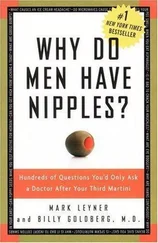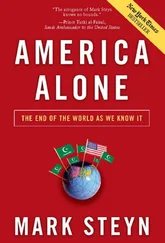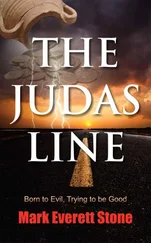Mark Steyn
AFTER AMERICA
Get Ready for Armageddon

PROLOGUE
THE STUPIDITY OF BROKE
There is the moral of all human tales;
’Tis but the same rehearsal of the past,
First Freedom, and then Glory—when that fails,
Wealth, vice, corruption—barbarism at last.
—Lord Byron,
Childe Harold’s Pilgrimage (1812–1818)
The sun’ll come out tomorrow
Bet your bottom dollar
That tomorrow there’ll be sun
—Charles Strouse and Martin Charnin,
Annie (1977)
Previously on Apocalypse Soon …
It was the worst of times, it was the not quite so worst of times.
The predecessor to this book was called America Alone: The End of the World as We Know It , and, given the title, you may be tempted to respond, “C’mon, man. You told us last time it was the end of the world. Well, where the hell is it? I want my money back. Instead, you come breezing in with this season’s Armageddon-outta-here routine. It’s like Barbra Streisand farewell tours—there’ll be another along next summer.”
Well, now: America Alone: The End of the World as We Know It was about the impending collapse of all of the western world except America.
The good news is that the end of the rest of the West is still on schedule.
The bad news is that America shows alarming signs of embracing the same fate, and then some.
Nobody writes a doomsday tome because they want it to come true.
From an author’s point of view, the apocalypse is not helpful: the bookstores get looted and the collapse of the banking system makes it harder to cash the royalty check. But Cassandra’s warnings were cursed to go unheeded, and so it seems are mine. Last time ’round, I wrote that Europe was facing a largely self-inflicted perfect storm that threatened the very existence of some of the oldest nation-states in the world. My warning proved so influential that America decided to sign up for the same program but supersized.
Heigh-ho.
It starts with the money. In “The Run Upon the Bankers” (1720), Jonathan Swift wrote:
A baited banker thus desponds,
From his own hand foresees his fall,
They have his soul, who have his bonds;
’Tis like the writing on the wall.
A lot of writing on the wall these days. Who has the bonds of a “developed world” developed to the point that it’s institutionally conditioned to living beyond its means? Foreigners with money. So who’s available and flush enough? The Chinese Politburo; Saudi sheikhs lubricated with oil but with lavish worldwide ideological proselytizing to fund; Russian “businessmen.”… These are not the fellows one might choose to have one’s bonds, never mind one’s soul, but there aren’t a lot of other options.
So it starts with the money—dry stuff about numbers and percentage of GDP. As Senator Michael Bennet of Colorado fumed to a room of voters in 2010, “We have managed to acquire $13 trillion of debt on our balance sheet. In my view, we have nothing to show for it.” 1
He’s right—and $13 trillion is the lowest of lowball estimates. But why then did Senator Bennet vote for the “stimulus” and ObamaCare and all the other trillion-dollar binges his party blew through? Why did Senator Bennet string along and let the 111th Congress (2009–2011) run up more debt than the first one hundred Congresses (1789–1989) combined? 2Panicked by pre-election polls into repudiating everything he’d been doing for the previous two years, the senator left it mighty late to rediscover his virtue.
You would think that Colorado voters might have remembered that, like Groucho Marx apropos Doris Day, they knew Michael Bennet before he was a virgin. Alas, an indulgent electorate permitted the suddenly abstemious spendaholic to squeak back into office.
And, contra Senator Bennet, eventually you do have something to show for it. It starts with the money, but it doesn’t stop there. It ends with a ruined and reprimitivized planet, in fewer easy stages than you might expect.
Let’s take a thought by the economist Herbert Stein:
If something cannot go on forever, it will stop. 3
This is a simple but profound observation. Dr. Stein first used it in the context of the long-ago debts and deficits of the Reagan era. “The Federal debt cannot rise forever relative to the GNP. Our foreign debt cannot rise forever relative to the GNP,” he said. “But, of course, if they can’t, they will stop.” It was, as he later wrote, “a response to those who think that if something cannot go on forever, steps must be taken to stop it—even to stop it at once.” 4And he has a point: if something can’t go on, you don’t have to figure out a way to stop it, because it’s going to stop anyway.
Eventually.
As you might have noticed, since he first made the observation, the debt has gone on rising, very dramatically. But the truth is unarguable. If you’re careening along a road toward a collapsed bridge, you’ll certainly stop, one way or the other. But it makes a difference, at least to you, whether you skid to a halt four yards before the cliff edge or whether you come to rest at the bottom of the ravine.
In 2010, Douglas Elmendorf, director of the Congressional Budget Office (CBO), described current U.S. deficits as “unsustainable.” 5On that everyone’s agreed. So let’s make them even more so! On assuming office, President Obama assured us, with a straight face, that his grossly irresponsible wastrel of a predecessor had taken the federal budget on an eight-year joyride. So the only way his sober, fiscally prudent successor could get things under control was to grab the throttle and crank it up to what Mel Brooks in Spaceballs (which seems the appropriate comparison) called “Ludicrous Speed.” Let’s head for the washed-out bridge, but at Obamacrous Speed!
The Spendballs plans of the Obama administration took the average Bush deficit for the years 2001–2008 and doubled it, all the way to 2020. 6
“We’ve got a big hole that we’re digging ourselves out of,” the president declared in 2011. 7Usually, when you’re in a hole, it’s a good idea to stop digging. But, seemingly, to get out of the Bush hole, we needed to dig a hole twice as deep for one-and-a-half times as long. And that’s according to the official projections of the president’s economics czar, Ms. Rose Colored-Glasses. By 2020, the actual hole will be so deep that even if you toss every Obama speech down it on double-spaced paper you still won’t be able to fill it up. In the spendthrift Bush days, federal spending as a proportion of GDP averaged 19.6 percent. 8That’s crazy. Obama’s solution was to attempt to crank it up to 25 to 30 percent as a permanent feature of life. That’s load up the suicide-bomber underpants and pass me the matches.
The CBO doesn’t put it quite like that. Musing on the likelihood of a sudden fiscal crisis, it murmurs blandly, “The exact point at which such a crisis might occur for the United States is unknown, in part because the ratio of federal debt to GDP is climbing into unfamiliar territory.” 9
But it’ll get real familiar real soon. A lot of the debate about America’s date with destiny has an airy-fairy beyond-the-blue-horizon mid-century quality, all to do with long-term trends and other remote indicators. In fact, we’ll be lucky to make it through the short-term in sufficient shape to get finished off by the long-term. According to CBO projections, by 2055 interest payments on the debt will exceed federal revenues. 10But I don’t think we’ll need to worry about a “Government of the United States” at that stage.
Читать дальше












